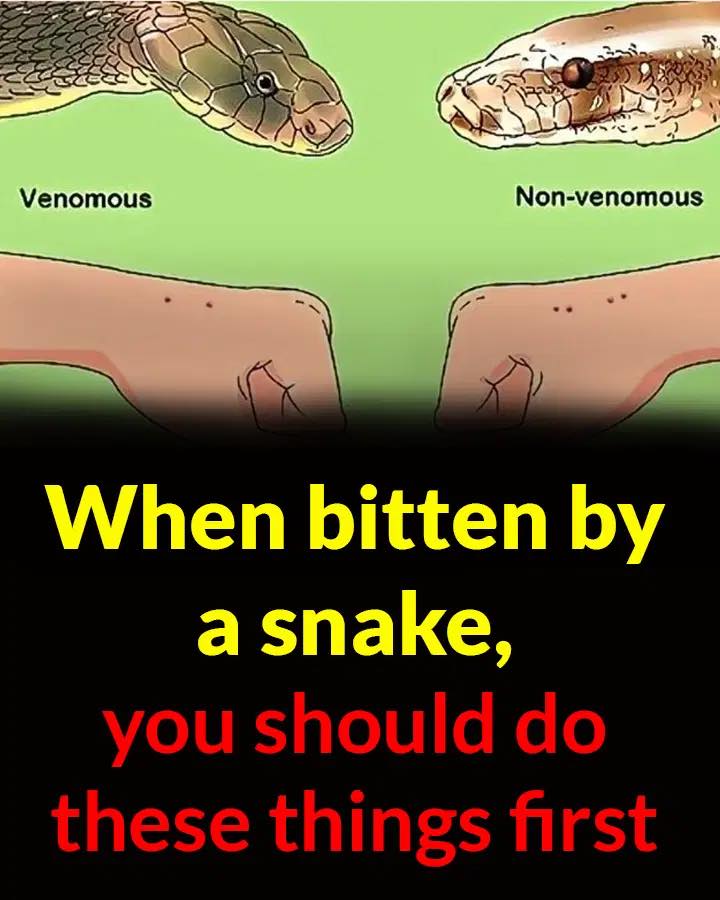🐍 What to Do Immediately After a Snake Bite (Step-by-Step Guide)

⚠️ Stay Calm and Act Quickly
Panic increases heart rate, which can spread venom faster. Take deep breaths and follow these steps.
✅ 1. Move Away from the Snake
- Do NOT try to catch or kill the snake.
- If you can, remember its color, size, or shape to help doctors identify the venom.
- Snakes often strike once and retreat — get to safety first.
✅ 2. Call Emergency Services Immediately
- Dial your local emergency number (e.g., 911, 112) and report a snake bite.
- Provide your exact location, type of snake (if known), and condition of the bite victim.
✅ 3. Keep the Affected Limb Still and Lower Than the Heart
- Do not walk or run if possible — movement spreads venom faster.
- If the bite is on an arm or leg, use a splint or sling to immobilize it.
- Keep the limb below heart level to slow venom flow.
✅ 4. Remove Tight Clothing, Rings, or Jewelry
- Swelling is likely — so remove anything that might become tight around the bite area.
✅ 5. Clean the Wound Lightly (If Possible)
- Use clean water only to lightly rinse the area.
- Do NOT apply ice, alcohol, or soap.
✅ 6. Cover the Bite with a Loose, Clean Bandage
- Protect the wound from infection.
- Do not wrap it tightly — no tourniquets.
✅ 7. Keep the Victim Lying Down and Still
- Limit physical activity as much as possible.
- Keep the person calm and hydrated (if fully conscious).
- Do not give food or drink if medical help is nearby.
🚫 What NOT to Do After a Snake Bite
✖️ Don’t suck out the venom
– It doesn’t work and can cause more harm.
✖️ Don’t apply ice or soak in cold water
– Cold reduces blood flow but doesn’t stop venom; it may cause tissue damage.
✖️ Don’t cut the wound
– Cutting increases infection risk and doesn’t help remove venom.
✖️ Don’t use alcohol or caffeine
– These speed up your heart rate, spreading venom faster.
🏥 When You Reach the Hospital
- Doctors may give antivenom if the snake is venomous.
- You’ll likely be monitored for blood pressure, organ function, and allergic reactions.
- Even non-venomous bites can become infected, so treatment is still needed.
🧠 TIP:
If you live in an area with many snakes, consider keeping a snakebite emergency kit and learn basic first aid.